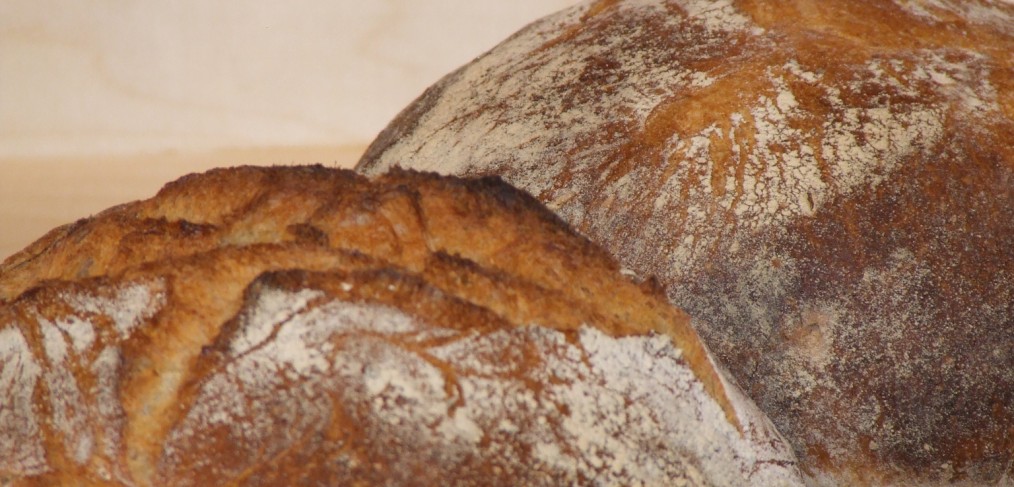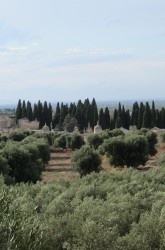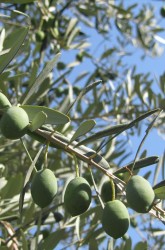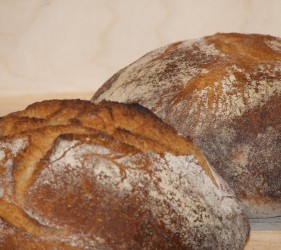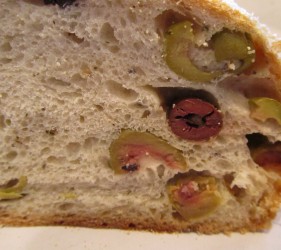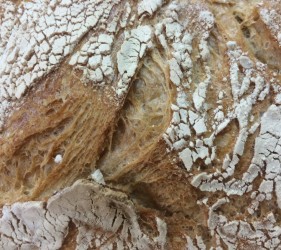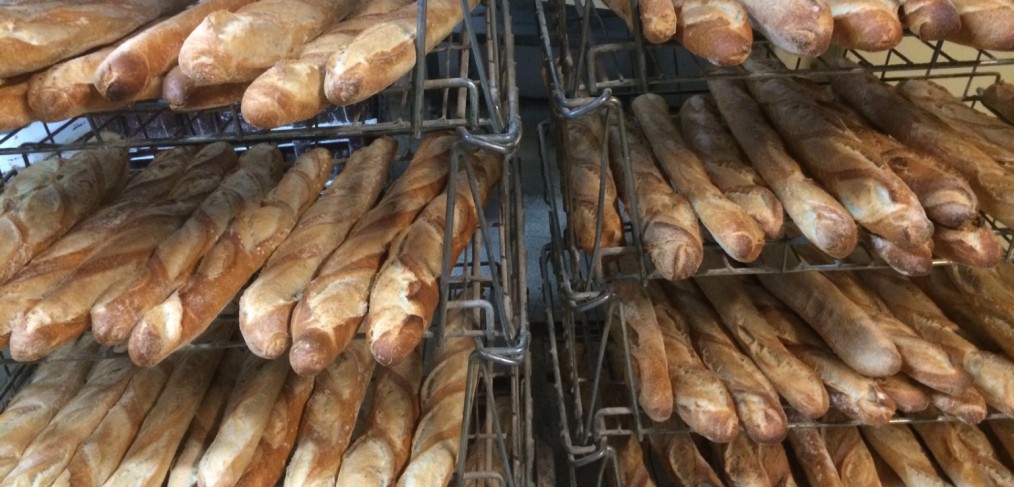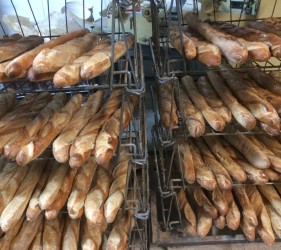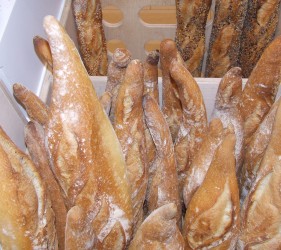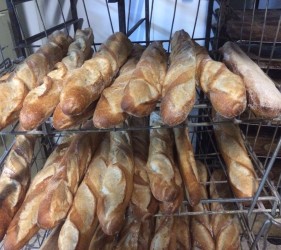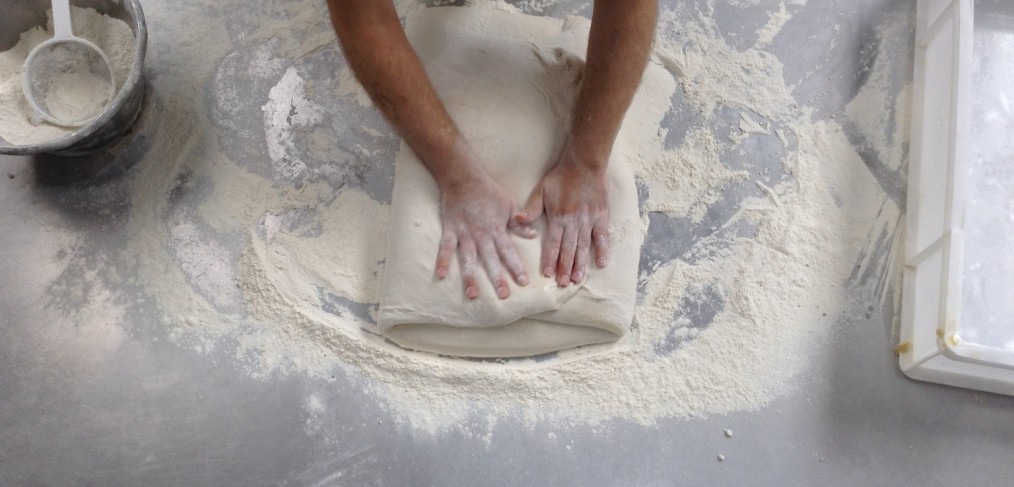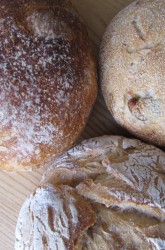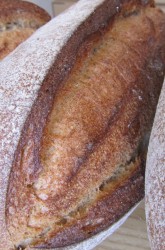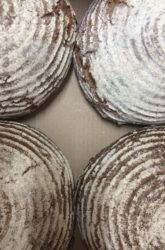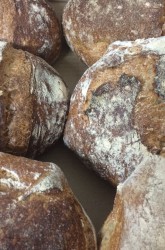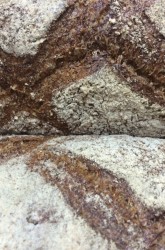Italy’s answer to French Pain Rustique bread, Pugliese bread origins stem from the Puglia region of Italy, in the Southeastern “heel” or “boot” of the country.
Puglia is widely known for its whitewashed hill towns, centuries-old farmland and wide tranquil scape of Mediterranean coastline. Its attractions include the vibrant port Capital Bari and the historic city Lecce, being the ‘Florence of the South’ for inspiration baroque architecture. The small town of Alberobello is famous for it’s preserved and unique historical trulli buildings, which are small dwellings built from the local limestone with dry-stone walls and conical roof.
Puglia is also Italy’s top regional produced of olive oil with approximately 40% of total output with an estimated 60 million olive trees. Making it heavenly liquid gold within local recipes and dishes.
Puglia’s overall landscape and blissful settings is as memorable, satisfying and historically rich as their signature bread. It’s often noted as the breadbasket of Italy.
Puglia, or Apulia has a long tradition of bread making dating back to the Roman empire. Pugliese bread has small holes due to the dough being stretched and folded at intervals during the bread making process. This gives the final load a chewy heavenly texture. This artisan handmade bread often crafted with lots of extra virgin olive oil is produced through a slow fermentation process for a greater depth of flavour. From wet dough a pre-ferment is made (often known as a starter). Some of the finely milled flour is mixed with water and yeast and left overnight to develop flavour. The following day, the dough is mixed with the remaining ingredients. Pugliese bread is typically shaped as a batard (oval) or a round loaf with a dimpled top. It is then processed with long slow rises before being baked.
The recipe for Pugliese bread also requires a Biga, an important step within Italian baking. A type of pre-fermentation that adds complexity to the bread’s flavour and provides the light, open texture whilst helping to preserve the bread by making it less perishable.
Like all good things in life Pugliese bread requires dedication, skill, patience and time – and can never be rushed. Its flavour is enhanced by a long fermentation period making it a crucial step within its production. A remarkable and distinguishable flavour you can enjoy.
Its light, airy and moist and sometimes complimented with the flavours of basil or freshly hand-stripped rosemary to create a gourmet aroma and memorable taste. It’s soft porous and moist interior contrasts with a thin, light and crisp crust. Beautifully caramelised crust and chewy textured interior. The handcrafted bread is great with prosciutto, salami and similar fillings. Pugliese bread is great for making sandwiches or simply dipping into olive oil.
Are you a cafe, venue or restaurant looking for a local supplier of fresh baked pugliese, ciabatta, sourdough and other artisan breads? Dolce Forno delivers freshly baked artisan breads and pastries within Hertfordshire, St Albans, Surrey, Berkshire, London and Buckinghamshire.
Contact us today to arrange a FREE sample tray of our artisan breads or pastries. Call our team at Dolce Forno Breads on 01727 762 456 or alternatively email contact@dolceforno.co.uk to find out more.

